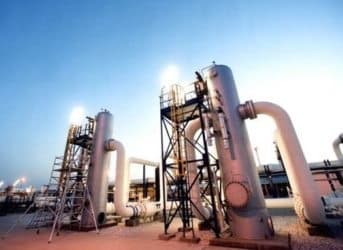In June 2013, Russia’s oil giant Rosneft formalised a deal with the China National Petroleum Corporation (CNPC) to supply the Chinese market with 26 billion barrels of oil over a 25 year period. This year could be equally lucrative if Russia’s largest gas producer Gazprom succeeds in closing its long-negotiated deal with CNPC to supply China with 38 billion cubic meters of natural gas over a 30 year period, starting in 2018.
The negotiations have dragged for almost a decade now, but there are signs that the deal might be brokered during president Putin’s May visit to China.
According to J.P. Morgan and Citigroup, the deal could signify a breakthrough for Russia’s largest gas producer battered by decreasing profits in Europe and domestic competition from companies such as Novatek and Rosneft. In their market analysis reports, both banks predicted Gazprom’s stocks to double in value over the next three years, as a direct consequence of the natural gas deal with China.
Related Article: Can U.S. LNG Break Russia’s Gas Grip on Europe?
Russia’s energy pivot to Asia is as much about politics as it is about economics. Russia is vitally interested in developing its Far East natural resources and rebuilding its geostrategic position in Asia, where more than half of global energy will be consumed by 2040.
BP Energy Outlook report estimates that China’s energy consumption alone will grow by 71% by 2035, but more importantly, the share of natural gas in its energy mix will triple from today’s 4% to 12%. At the same time, coal consumption will fall by 17% to 52%, and oil consumption will stagnate at the current 18%. China has started to tackle pollution aggressively and the increased use of natural gas could save the country’s economy up to $820 billion in environmental costs by 2025, according to the recent General Electric study.
Finally, China is aiming to diversify its energy sources to strengthen energy security and reduce its swelling energy bill. Currently, the country imports around 32% of its natural gas needs. Around 52% of China’s gas imports come by pipeline from Turkmenistan and Uzbekistan, and the rest are imported in the form of LNG, primarily from Qatar, Australia, Malaysia and Indonesia.
With the price of LNG in Asia reaching $20 per million British termal units (mmBtu) in February, the average price of $380-400 per 1000 cubic meters of Russian natural gas, or about $10.5 mmBtu, sounds like a bargain. The price is still the key obstacle, as both sides are resolved not to budge on it.
Related Article: East Asia Energy Advisory
However, circumstances have changed since mid-2000s when negotiations started, which might speed things up. Gazprom is no longer an energy hegemon in Europe, and it needs to deleverage its overexposure to the more competitive and better regulated European energy markets, where demand for oil and gas will stagnate or fall, due to increased energy efficiency and the use of renewable energy. China, however, will have to find a long-term solution for its rapid energy consumption growth that will be ever-more dependent on imports in the future.
This represents a strong opportunity for Russia, with its heavily commodity export dependent economy and enormous, still largely untapped gas reserves in the remote eastern provinces.
ADVERTISEMENT
Russia’s key advantage is the relative proximity to the Asian markets, price flexibility and the security aspect, primarily in comparison to the politically more volatile Central Asian area or the Middle East. The agreement between the two countries will also signify an important symbolic Russian shift from Europe to Asia: if successful, China will topple Germany as the largest importer of Russian gas.
By Ante Batovic


















